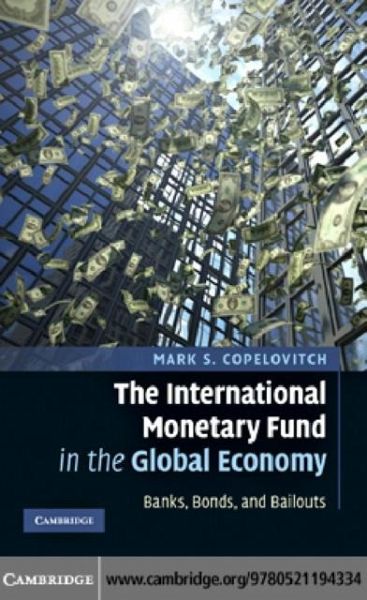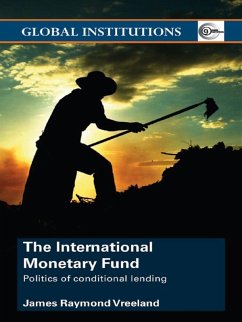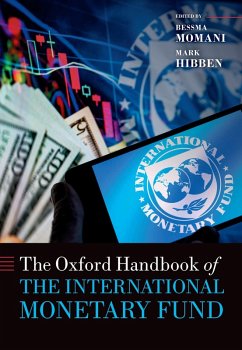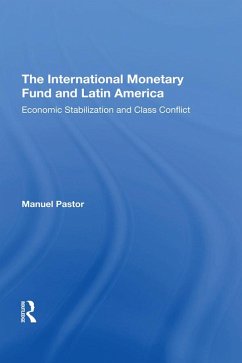
International Monetary Fund in the Global Economy (eBook, PDF)
Banks, Bonds, and Bailouts
Versandkostenfrei!
Sofort per Download lieferbar
37,95 €
inkl. MwSt.
Weitere Ausgaben:

PAYBACK Punkte
19 °P sammeln!
The explosive growth and increasing complexity of global financial markets are defining characteristics of the contemporary world economy. Unfortunately, financial globalization has been accompanied by a marked increase in the frequency and severity of financial crises. The International Monetary Fund (IMF) has taken a central role in managing these crises through its loans to developing countries. Despite extensive analysis and criticism of the IMF in recent years, key questions remain unanswered. Why does the Fund treat some countries more generously than others? To what extent is IMF lendin...
The explosive growth and increasing complexity of global financial markets are defining characteristics of the contemporary world economy. Unfortunately, financial globalization has been accompanied by a marked increase in the frequency and severity of financial crises. The International Monetary Fund (IMF) has taken a central role in managing these crises through its loans to developing countries. Despite extensive analysis and criticism of the IMF in recent years, key questions remain unanswered. Why does the Fund treat some countries more generously than others? To what extent is IMF lending driven by political factors rather than economic concerns? In whose interests does the IMF act? In this book, Mark Copelovitch offers novel answers to these questions. Combining statistical analysis with detailed case studies, he demonstrates how the politics and policies of the IMF have evolved over the last three decades in response to fundamental changes in the composition of international capital flows.
Dieser Download kann aus rechtlichen Gründen nur mit Rechnungsadresse in A, B, BG, CY, CZ, D, DK, EW, E, FIN, F, GR, HR, H, IRL, I, LT, L, LR, M, NL, PL, P, R, S, SLO, SK ausgeliefert werden.













